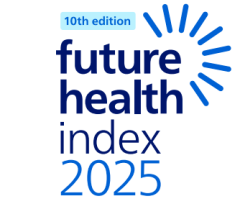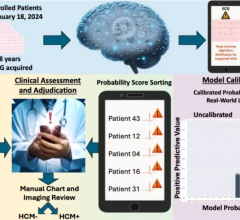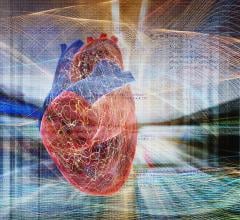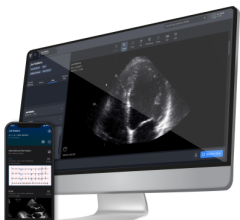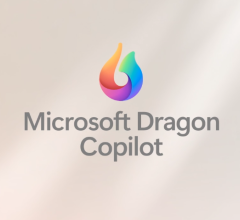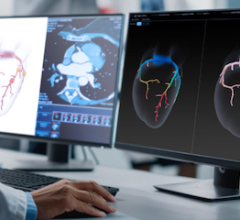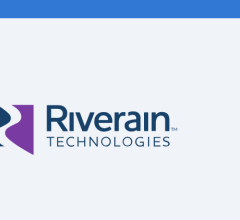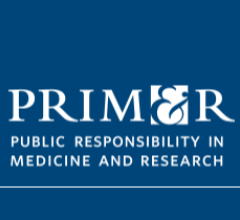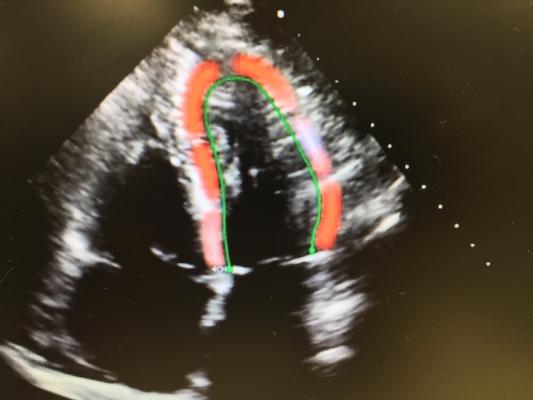
An example of AI-assisted automation developed by TomTec, where a deep learning algorithm automatically marks the myocardial borders and performs auto quantification This removes time consuming tasks to free up the operator to spend more time with patients and helps make exams more reproducible.
Intelligent software solutions (aka deep learning, artifical intelligence, AI, machine learning), this seems to be certain, will not replace cardiologists. They will, however, replace processes in cardiology that are ubiquitous today, but suboptimal due to the limitations of the tools. And it will be the cardiologists who will benefit from these developments. Here are some ways AI will improve echocardiography based on what is being developed by several innovative health information technology (IT) companies to better understand the processes that will be affected, the tasks software will take over and what machine learning has got to do with all this.
From an IT point of view, the crucial question concerns the role machine learning will play for enhancing the quality of processes and the quality of care. The answer to this question explains the characteristics of intelligent software — the way bits and bytes are trained to recognize patterns and make decisions. The logical next question is “How do we measure the results of AI?”
AI Is About Understanding, Not About Learning by Heart
Very often validity of the data is considered the only quality criterion of neural networks for machine learning. Valid data by itself however does not make a machine learning system. Here artificial intelligence works just like natural intelligence: a not so clever student who simply learns the cases by heart without understanding the underlying principles will never be a good physician, no matter how "valid" the data might be. Really intelligent software is based on networks that learn to understand the principles. Consequently, above and beyond the case data, contingencies have to be culled from and trained for each clinical case in order to be able to identify trade-offs and correct errors.
Absolute truths are very rare in medicine. Three cardiologists will arrive at three different measuring results and interpret the very same ultrasound image in three different ways. The software has to be able to handle these kind of variances. Its crucial feature is the fact that unlike the human brain, AI does not produce statistical abnormalities. Thus the network has to be fed with many interpretations of a given exam in order to be able to arrive by itself at the majority opinion. And it has to be in constant competition with human intelligence. In software development, the clinical partners are not only case delivery services, they are permanent sparring partners.
Whoever entrusts the human heart to the bits and bytes of cardiac software should have a very close look at the underlying machine learning methodology – because this methodology separates average from very good software.
AI Can Eliminate Routine Duties and Allow More Time for Complex Patients
An important field of application for any well-trained AI software is conducting routine cardiac ultrasound exams and preparing the results for human reading, for instance follow-up exams. When cardiac performance is regularly tested using echocardiography, as might be the case with cancer patients, good software can automatically perform all necessary measurements. It uses prior exams, chooses suitable images from the image pool and measures in the appropriate planes. Furthermore, it compares the measurement results with the reference values from similar studies. For the subsequent human reading the software offers the physician a selection based on relevant, maybe even critical content and/or a simple standard finding. To finalize the exam the physician will be guided through a control process to confirm the findings and release them. In clinical routine such automation saves a lot of time and enhances the reporting quality.
Automation Via AI Enables True Mobility in Compact Ultrasound Systems
Mobile ultrasound machines are handy, but without the ability to measure and evaluate the data generated on the go, the potential of mobility is not fully realized. The automation capabilities of an intelligent software package close the gap between generating and evaluating data as they render obsolete the many workflow steps that have to be performed manually on a (small) touchscreen, be it the selection of the appropriate image series, zooming or setting the measurement points.
Another important aspect in this context is transferring the data to the correct storage location, either in the cloud or on a server. The storage space of mobile devices is often too small for long-term storage of complex exams. Not to mention the fact that measurements require enormous amounts of energy and computing power, which would make both battery and processors go up in smoke. Thus, outsourcing data processing is a technical necessity.
However, there are process arguments in favor of mobile use. In healthcare networks, the results of measurements conducted on mobile devices are available across the facility in real-time. This allows quick decision making among physicians and across departments and ensures seamless diagnostic processes. This allows for faster diagnoses, even in decentralized structures. A hospital does not have a cardiology department or requires the knowhow of an external partner? No problem, since this third party has easy access to all relevant images via a mobile device or the browser – any time and any place, with the images being presorted and measured. Another scenario is the emergency physician transmitting the ultrasound images from the site of the accident directly to a central storage space, and by the time the ambulance arrives at the hospital the cardiologist on call has already reviewed all relevant images, measurement results and findings.
Artificial Intelligence Can Aid Quality Assurance and Reproducibility
Automated processes, particularly in routine tasks, improve quality assurance since they make sure echo exams are always performed and documented according to a pre-defined pattern. This is not always the case with exams performed by humans. Lack of time or experience can frequently lead to very different results with regard to both diagnosis and documentation, which my compromise the quality of care. Automated processes iron out quality differences for example by pointing out missing image series or by consistently using identical measurement criteria. Thus intelligent software can ensure that within a given facility or network binding standards are established which facilitates compliance with certain treatment paths.
This is good news for the hospital management, which relies on impeccable quality assurance (QA) and documentation in the communication with insurers or lawyers in case of litigation.
Even today a number of cardiac ultrasound measurements can be automated and they already improve diagnostic quality, e.g. ventricular measurements or flow measurements. Future software generations will be able to use neuronal networks to arrive at decisions faster, in a more comprehensible, reproducible and scientifically sound manner. And they will relieve
cardiology staff from drudge work so they can focus on their core competency, they can focus more time on caring for the patients.
Editor's note: This article was written by the OEM medical imaging software vendor TomTec, which is in the process of developing AI-based solutions. To date, the company has not received FDA or CE certification, nor approval for patient use.
Related Deep Learning in Cardiology Content:
Applications for Artificial Intelligence in Cardiovascular Imaging
How Artificial Intelligence Will Change Medical Imaging
How Will Artificial Intelligence Impact Healthcare?
VIDEO: Use of Artificial Intelligence To Speed Cardiac Clinical Research — James Januzzi, M.D.,
VIDEO: Artificial Intelligence for Echocardiography at Mass General — Interview with Judy Hung, M.D.
VIDEO: Example of Artificial Intelligence Integrated Into Cardiac Ultrasound.
Combatting the No. 1 Cause of Death With the Help of Artificial Intelligence and Advanced Technology
VIDEO: Overview of Artificial Intelligence and its Use in Cardiology — Interview with Anthony Chang, M.D.
VIDEO: ACC Efforts to Advance Evidence-based Implementation of AI in Cardiovascular Care — Interview with John Rumsfeld, M.D.
VIDEO: Artificial Intelligence Applications for Cardiology — Interview with Anthony Chang, M.D.
PODCAST: Fitting Artificial Intelligence Into Cardiology — Interview with Anthony Chang, M.D.
VIDEO: How Hospitals Should Prepare for Artificial Intelligence Implementation — Interview with Paul Chang, M.D.

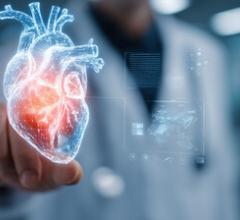
 September 24, 2025
September 24, 2025 
